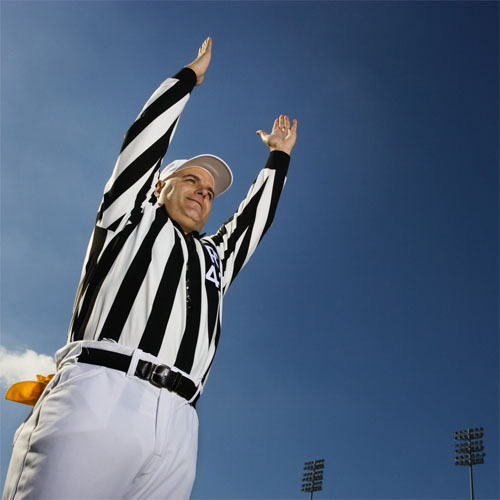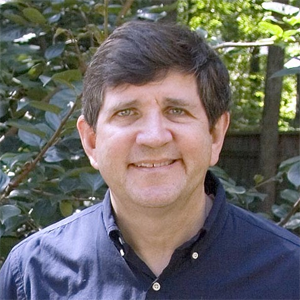
Zebra
Somewhere in, NJ
Male, 62
I've officiated football for over 30 years, now in my 26th on the college level. I've worked NCAA playoffs at the Division II and III level. In addition, I've coached at the scholastic level and have been an educator for over 35 years. I have no interest whatsoever in being an NFL official! Ever!
A couple of thoughts. First, I believe that most officials start out in officiating because they love the sport. You're on the right track. As for how to get started, often local officiating organizations put ads or list meetings in the sports section or in public notices in the paper. Another way is to contact your state's sports governing body to get the name/address/phone of the secretary of the officials group. Contact them for an application or to find out about the process. If you happen to be in season, go to a local high school game and talk to the umpires. That, for the record, is how I got into football officiating.
One of the issues in the NFL lockout involved adding crews. The reason was that the commissioner wanted to be able to have the extra bodies to replace "under-performing" officials during the season. The number of "bad calls" isn't a black-and-white matter; it's a lot more complex than that. Officials at the higher levels are judged on a range of actions including correct calls, correct judgements, incorrect judgements, incorrect calls. It also takes into account working with the crew, communicating with coaches, and test scores, among other things. I don't believe a supervisor has a set number in mind when he critiques an official. So there isn't a number of "bad calls" that decides an official's fate.
It seems that every time you have a controversial call, you learn some other wrinkle about instant replay (they can't review this or that). I've never worked with instant replay, although I know a lot of officials who like it because they know the call will be corrected. Odd, you say, that they are okay with that? Bottom line is, officials want the call to be right, so they know that if a call is tenuous, it will be corrected. What would I want changed? I'm really not sure. I think a lot is going right, recent activity not withstanding. Sometimes I think they've gone too far with things like catches (having to maintain possession throughout the entire action - the only way you could possibly see it is with super-slow motion replay - takes away the human element). I'm probably not giving you anything too juicy here, but if I think of something, I'll add it -- if the NFL doesn't do it first!
Short answer: no. Referees have to know the rules, the enforcement, and need to have the ability to speak clearly and extemporaneously. Every situation is a bit different so you can't have a script. The easy stuff is natural: "Holding, on the offense, number 75. Ten yard penalty, repeat second down". But you can get a bit involved, too. "We have multiple fouls on the receiving team on the return. Block in the back, number 29; that foul is declined. Holding, number 43. That foul is enforced at the spot of the foul. First down." You can't script all that. There are some things that supervisors want and don't want said in the announcements. For example, with the current concern about concussions, there are more fouls for helmet-to-helmet contact. But you shouldn't be hearing the phrase "helmet-to-helmet". The national college supervisor does want the term "targeting" used, as in the head, or the player, was targeted by the hit. But don't use helmet in the announcement. Noted NFL referee Jerry Markbreit tried to prepare for the unusual. In his book, he recounted how he would create crazy plays and their related fouls. He would then "announce" the foul, practicing announcing it while looking at himself in the mirror. As the story goes, one game he had a weird, wacky, and very convoluted foul. He gets on the mike and announces it clearly and concisely. He later gets a call from someone who says what a great job he did explaining the foul and its enforcement. They asked Markbreit how he could explain that play so well and on TV no less. His answer: "I practiced it".
CrossFit Coach
 Why is Crossfit so popular with women?
Why is Crossfit so popular with women?
Casting Director
 What do you look for when auditioning candidates for reality TV?
What do you look for when auditioning candidates for reality TV?
Debate Coach
 Are presidential debates actually "debates", by the traditional definition?
Are presidential debates actually "debates", by the traditional definition?
This was, as I understand it, a simple management versus union matter. I heard, as I'm sure you did, that it would cost each team about $100,000 to settle it. The union wanted protections and the NFL wanted to make some significant changes in long term costs and control of the process of putting officials on the field. Roger Goodell set out an open letter to season ticket holders in which he wrote: "While the financial issues received the most attention, these negotiations were much more about long-term reforms. For example, beginning with the 2013 season, the NFL will have the option of hiring a number of officials on a full-time basis to work year-round, including on the field. In addition, the NFL will have the option to retain additional officials for training and development purposes, and may assign those additional officials to work NFL games." The second part is important in that it lets the NFL add officiating crews so that "underperforming" officials can be replaced during the season. The union counters that there are crews not working some weeks now, and those officials can be used to cover such situations. Bottom line, in my view, is that this was a control issue for the NFL; they didn't want to lose any.
Once upon a time, in the world of football officials, the umpire (the one right behind the defensive line) used to be referred to as being in the "rocking chair". Just like an old man, he could sit back a rock on the front porch. He was often the heaviest and slowest on the field. Not any more. The game, even on the high school level, is much faster and the players more athletic. The spread offense and no huddle teams are across the board. While you don't have to be ready to run a marathon, you'd better be able to move quickly and make judgements on the fly. An interception at the 1, run back 99 yards? You better be at the goal line pretty much with that defender, to call the TD! I don't know of any physical testing at the high school level, but just about all college conferences require officials to have pre-season physicals and to undergo physical testing of some sort. Being able to run (jog) at least a half mile and to do interval sprints is pretty common. Everyone is different as far as training. If you don't do a winter sport, where you would be staying in shape, I usually get out of hibernation in March or April. That coincides with the start of our local study groups on the new rules (still think it's a 3 or 4 month job?). You hit the treadmill, you stretch, you do sprints. I try to get to the gym 2-3 times per week from the start to about June 1. Then I start the outdoor segment (warmer weather, conditions similar to what you'll get in the early part of the season). By the way, the weekly study groups have been going on at least into May, and once we get final interpretations on the new rules, those sessions are more important. The conferences' pre-season clinics, often two day affairs, are in early August, so you're trying to peak with your training with those dates in mind. You continue with the running and stretching; I'm doing at least 3 times per week. And after the clinic, where we get rules tests as well as the physical testing, I'm still running twice a week and at the gym with strength and stretching another two. And I think my workout is light compared to some others. During the season I cut back. A three hour college game on a Saturday (often after a two-plus hour high school game on Friday night) is a pretty good workout. Usually it's stretching and some strength training during the week. Does that help?
While for most of this is an avocation, it is no different than any other job. You are going to have "professional differences". Your example of "fairness" might not be the right example, but there will be officials who have different views of holding or pass interference. Some sideline officials will give a coach a bit more leeway in comments or "dialogue" about a call than others. If you are on a crew, you try to be as consistent as you can, That's why, on the college level, we get there three or more hours before a game so we can review the little things that make the game run well. If there are serious issues - and I'm probably talking personality more than actual officiating - it needs to be addressed (the referee - the white hat - needs to intervene) and that might mean moving someone off the crew.
-OR-
 Login with Facebook
Login with Facebook (max 20 characters - letters, numbers, and underscores only. Note that your username is private, and you have the option to choose an alias when asking questions or hosting a Q&A.)
(A valid e-mail address is required. Your e-mail will not be shared with anyone.)
(min 5 characters)
By checking this box, you acknowledge that you have read and agree to Jobstr.com’s Terms and Privacy Policy.
-OR-
 Register with Facebook
Register with Facebook(Don't worry: you'll be able to choose an alias when asking questions or hosting a Q&A.)